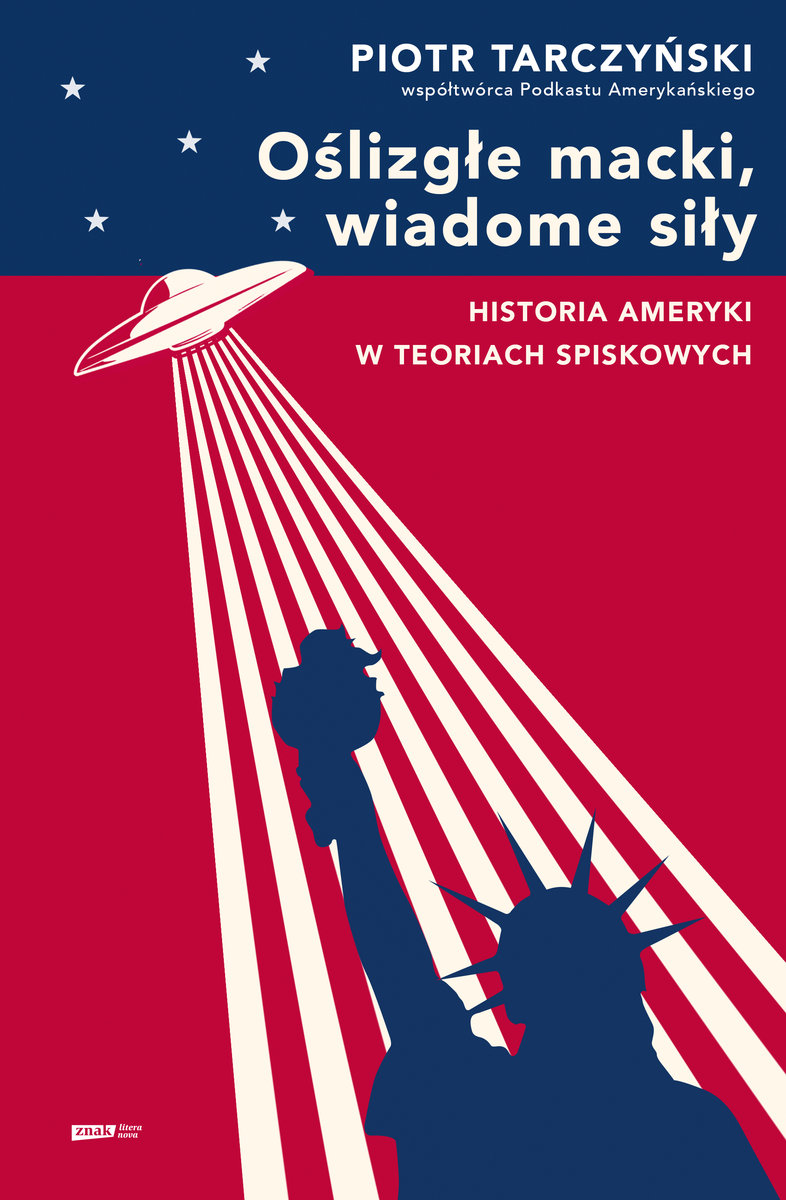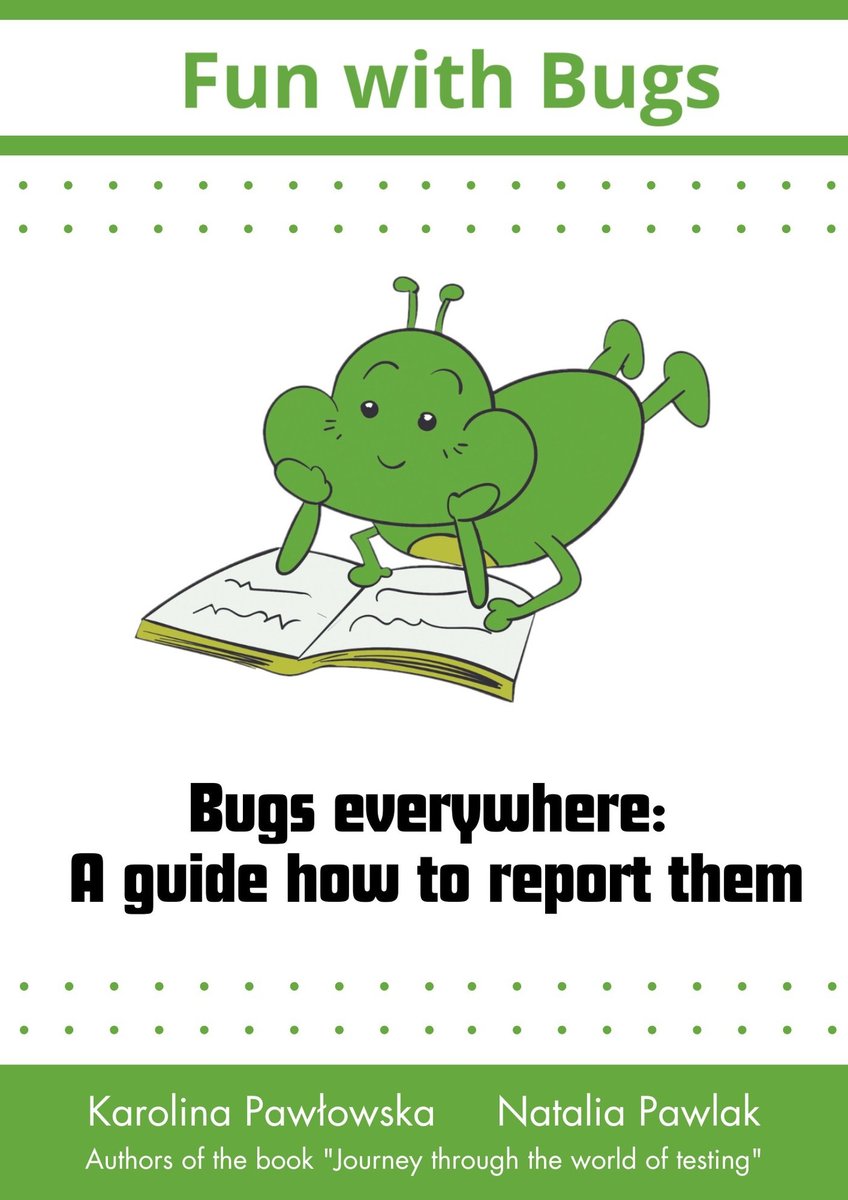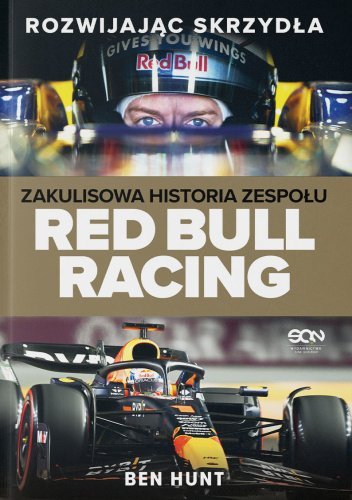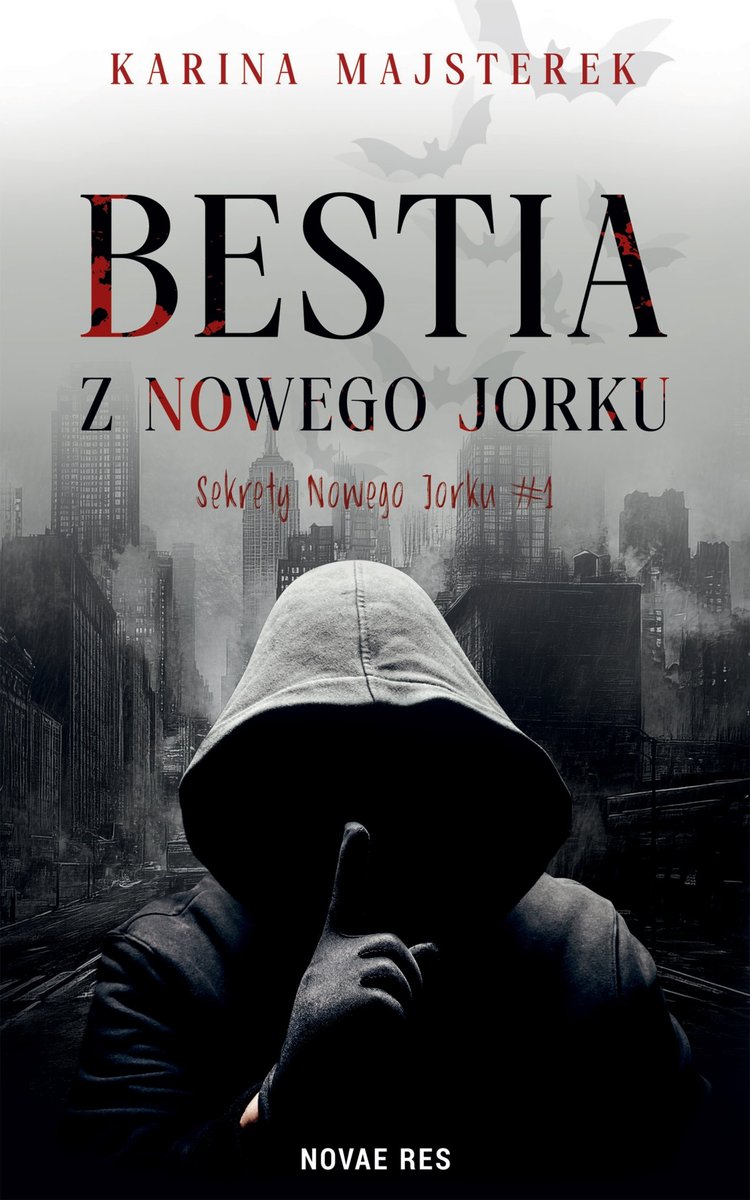1620
| Szczegóły | |
|---|---|
| Tytuł | 1620 |
| Rozszerzenie: | |
1620 PDF - Pobierz:
Pobierz PDF
1620 - podejrzyj 20 pierwszych stron:
EDMUND JAN DSMA�CZYK
Encyklopedia Spraw Mi�dzynarodowych i ONZ
PA�STWOWE WYDAWNICTWO NAUKOWE � WARSZAWA W
Opracowanie edytorskie
Zesp� Encyklopedii i S�ownik�w PWN
pod kierunkiem W�odzimierza Kryszewskiego
Nazewnictwo geograficzne Redakcja Kartografii PWN
Redaktor koordynator Helena Lehr
Kierownictwo produkcji Kazimierz Mliczewski, Stanis�aw Mierkis
Redakcja Techniczna
Janusz Malinowski, Tekla Malinowska,
Tadeusz Piasecki
Organizacja produkcji Mieczys�aw Ochal
Korektorzy Joanna M�odzik, Hanna Janczcwska
Opracowanie graficzne Stefan Nargie��o
Z f 3 ^5
Copyright by
Pa�stwowe Wydawnictwo Naukowe
Warszawa 1974
Printed in Poland
Od Wydawnictwa
Pa�stwowe. Wydawnictwo Naukowe oddaje do r�k Czytelnik�w now� encyklopedi� specjalistyczn�. Encyklopedia Spraw Mi�dzynarodowych i
ONZ, napisan� w ca�o�ci przez jednego Autora � Edmunda Jana Osma�-czyka. Publikacja ta jest pr�b� wykorzystania czterech j�zyk�w
roboczych ONZ � angielskiego, francuskiego, hiszpa�skiego i rosyjskiego �jako mi�dzynarodowego klucza do encyklopedii opracowywanych
w jednym z wielu j�zyk�w �wiata nie u�ywanych powszechnie. Stanowi ona alfabetycznie u�o�one kompendium, ��cz�ce historyczny i
wsp�czesny rozw�j stosunk�w mi�dzy narodami w XIX i XX w. z obrazem mi�dzynarodowego �wiata, kt�ry prezentuje obecnie Organizacja
Narod�w Zjednoczonych, a zarazem jest s�ownikiem terminologii mi�dzynarodowej w 4 j�zykach roboczych ONZ.
Na ca�o�� i oryginalno�� publikacji sk�adaj� si� wi�c 3 elementy: obszerny zbi�r informacji o stosunkach mi�dzynarodowych w XIX i XX w.;
obszerny zbi�r informacji o dzia�alno�ci i dorobku prawno-mi�dzynarodowym wieluset organizacji mi�dzynarodowych i mi�dzyrz�dowych pod
egid� ONZ; 5-j�zyczny s�ownik terminologii mi�dzynarodowej wraz z pi�cioma indeksami.
Encyklopedia Spraw Mi�dzynarodowych i CW.Z'umo�liwia wszechstronne poznanie rozleg�ej sfery spraw mi�dzynarodowych i cho� wydana w
j�zyku polskim, mo�e s�u�y� osobom nie znaj�cym j�zyka polskiego, a znaj�cym jeden z czterech j�zyk�w roboczych ONZ. Pos�ugiwanie si�
Encyklopedi� u�atwiaj� czytelnikom nie znaj�cym j�zyka polskiego obcoj�zyczne indeksy w j�zykach angielskim, francuskim, hiszpa�skim i
rosyjskim, zamieszczone na ko�cu publikacji. Za�o�enia programowe i uk�ad Encyklopedii szczeg�owo omawia przedmowaAutora.
Encyklopedia Spraw Mi�dzynarodowych i ONZ przeznaczona jest dla szerokiego kr�gu Czytelnik�w interesuj�cych si� problematyk�
mi�dzynarodow�, przede wszystkim dla dziennikarzy, prawnik�w, pracownik�w naukowych i student�w oraz pracownik�w s�u�by zagranicznej i
handlu zagranicznego. Dzi�ki 5-j�zycznej terminologii i 5-j�zycznym indeksom s�u�y� mo�e r�wnie� bibliotekom uniwersyteckim, instytutom
spraw mi�dzynarodowych i Czytelnikom za granic�.
Zesp�l Encyklopedii i S�ownik�w Pa�stwowego Wydawnictwa Naukowego, podejmuj�c si� wydania Encyklopedii Spraw Mi�dzynarodowych i
ONZ nada� publikacji jednolit� form� edytorsk�, zgodnie z przyj�tymi w wydawnictwach encyklopedycznych zasadami leksykograficznymi i
nazewniczymi. W trakcie prac edytorskich has�a Encyklopedii Spraw Mi�dzynarodowych i ONZ by�y kilkakrotnie recenzowane przez specjalist�w
z zakresu problematyki mi�dzynarodowej, kt�rym Wydawnictwo wyra�a serdeczne podzi�kowanie. Oddaj�c Encyklopedi� Spraw
Mi�dzynarodowych i ONZ E. J. Osma�czyka do r�k Czytelnik�w Pa�stwowe Wydawnictwo Naukowe wyra�a nadziej�, i� Encyklopedia ta
u�atwia� b�dzie bli�sze poznanie rozleg�ej sfery spraw i stosunk�w mi�dzynarodowych oraz s�u�y� b�dzie naczelnej idei Narod�w Zjednoczonych
� sprawie powszechnego pokoju i powszechnej wsp�pracy mi�dzy narodami.
Pa�stwowe Wydawnictwo Naukowe
Prom the Publishers
Polish Scientific Publishers present a new specialistic encyclo-paedia, Encyclopaedia ofInternational Affairs and the UN by Edmund Jan Osma�czyk. Written in its entirety by a single author, it is
the attempt to provide a work of reference which, though compiled in a language not in widespread use, can be ofservice to the foreign reader because it employs the four UN working languages
as a key. Thus, as author cxplains in greater detail in his preface, anyone wjth a knowledge of English, French, Russian or Spanish, will be able to consult the materia� in these pages.
At the same time Encyclopaedia of' Internationa� Affairs and the UN is the specialistic eneyclopaedia, which strict�y inter-related the development of intemational relations in the 19th and 20th
centuries with the picture of the worid represented today by the United Nations.
Three elements combine, therefore, to m�k� this an original work of reference: a massive array of information about interna-tional relations throughout the worid in the 19th and 20th centuries;
eriually copious information about the operations and legislation ofthe hundreds ofintergovemroental and intemational organizations actmg under the auspices of the United Nations;
a five language glossary of international terminology supple-mentcd by five indexes.
In this modem surrey of intemational relations the rnain accent is, ofcourse, on 20th-century worid affairs: socialism, capitalism, the strivings of the Third Worid and, above all, the struggie for
peaceful coexislence and the collective security of all nations. On the editorial side, the publishers � the Encyclopaedias and Dictionaries Section of the Polish Scientific Publishers � havc
confined themselves to making sur� of the unified presentation of the materia� in keeping with the lexicographical and other principles customary in such publications. Prior to publication the
articles in this Eneyclopaedia were checked seyeral limes by experts on interoational affairs, to whom we wish to express our warmest thanks. We hope that Eneyclopaedia of International Affairs
and the UN by E. J. Osma�czyk will be a very useful reference item for all readers interested in intemational problems and thus will serve to promote the cardinal idea of the United Nations �
universal peace and universal cooperation among nations.
Polish Scienlific Publishers
Not� de 1'Editeur
Les Editions Scientifiques de Pologne presentent aux Lecteurs une nouyelle encyclopedie specjalist� � L'Encyclopedie des Affai-res Internationales et de l'ONU elaboree par Edmund Jan
Osma�czyk. Cet ouyrage ecrit entierement par un seul Auteur cst un essai d'utilisation des quatre langues de travail dc 1'ONU: 1'anglais, le francais, 1'espagnol et le russe comme cli internationale
des encyclopedies elaborees dans une des nombreuses langues du monde qui ne sont pas employ�es universellemeat. Dans le cas precis, c'est la premier� encyclopedie polonaise, dans une grand�
mesure accessible aux personnes qui connaissent 1'anglais, 1'espagnol, le francais ou le russe, ce qu'explique en detali la preface de 1'Auteur.
L* Encyclopedie des Affaires Internationales et de rONU est en meme temps 1'encyclop�die specjalist� qui unie etroitement le developpement historique et contemporain des relations entre les
nations aux XlXe et XXe siecle avec 1'image du monde inter-national que pr�sente aujourd'hui 1'Organisation des Nations Unie�.
Trois elements concourent a 1*ensemble et a 1*originalite de 1'oeuwe: un richc recuei� d'informations sur les relations in-temationales dans le monde entier aux XlXe et XXe siecle; un riche
recuei� d*informations sur ractivite et l'acquis juridico-in-temational de milliers d'organisations intergouvemementales et intemationales sous 1'cgide de 1*ONU; un dictionnaire en cinq
Od Wydawnictwa
vi
langucs de la terminologie internationale, complet� de cinq index.
Dans ce tableau modern� des relations intemationales mondiales dominent 6videmment les probl&mes de la seconde moitie du XXe siecle, a savoir les qucstions du socialisme, les problemes du
capitalisme, les aspirations du Tiers Monde et la qucstion majeure: la lutte pour la coexistence pacifique et la securite collective de tous les peuples du.monde. La Section des Encyclop�dies et des
Dictionnaires d'Editions Scientifiques de Pologne, en entreprenant la publication de 1'Encyclopedle des Affaires Internatlonales et de 1'ONU a donn� a cet ouvrage une form� �ditoriale homogene
conformement aux principes lexicographiques et onomastiques admis dans les publi-cations encyclop�diques.
Au cours des travaux d'edition les articles faisant partie de l'En-cyclopedie des Affaires Internatlonales et de 1'ONU ont ite plu-sicurs fois ana�yses par des specialistes de la problematique des
relations intemationales auxquels 1'Edition exprime s� reconnai-ssance profonde.
En pr�sentant aux Lecteurs 1'Encyclopedle des Affaires Interna-Ilonales et de 1'ONU de E. J. Osma�czyk, Les Editions Scientifiques de Pologne esperent que 1'Encyclopedie contribuera a une
connaissance plus proche d'une vaste sphere des affaires et relations internationales et servira 1'idee cardinale de Nations Unie� � la cause de la paix universelle et la coop�ration universelle entre
les peuples.
� Editions Scientifiques de Pologne
Del Editor
La Editorial Cientifica de Polonia entrega en manos de los lectores una nueva enciclopedia especializada, la Enctciopedia de Asuntos Internacionales y de la ONU, elaborada por Edmund Jan
Osma�czyk. La obra, escrita en su totalidad por un solo Autor, es un cnsayo de utiiizaci�n de los cuatro idiomas de trabajo de la ONU � espa�ol, ingl�s, franc�s y ruso � como clave
internacional para las enciclopedias elaboradas en uno de los muchos idiomas del mundo no usados generalmente. En este caso concreto es la pri-mera enciclopedia polaca, que puede ser
accesible en gra� medida a las personas que conozcan el ingles o el espaflol, el ruso o el franc�s, lo que detalladamente explica el prefacio del Autor. Es al mismo tiempo la Enciclopedia de
Asuntos Internacionales f de la ONU es la enciclopedia especializada, que une el hist�rico y contemporaneo desarrollo de las relaciones entre los puch�o� en los siglos XIX y XX con el cuadro del
mundo internacional, que hoy presenta la Organizaci�n de las Naciones Unidas.
En el conjunto y originalidad de la obra conturren, pues, tres elementos: una rica infonnaci�n sobre las relaciones internacio-nalcs en todo el mundo en los siglos XIX y XX; una rica infor-tnaci�n
sobre la actiyidad y acervo juridico-internacional de miles de organizaciones intergubernamentales e internacionales bajo la egida de la ONU; y, finalmente, un diccionario en cinco idio-mas de la
terminologia internacional, basado en cinco Ihdices. En este cuadro de hoy de las relaciones internacionales en el
mundo domina, por supuesto, la problematica de la segunda mitad del siglo XX, o sea las cuestiones del socialismo, los proble-mas del capitalismo, las aspiraciones del Tercer Mundo y la
cuesti�n principal: la lucba por la coexistencia pacifica y la segu-ridad colectiva de todos los pueblos del mundo.
La Secci�n de Enciclopedias y Diccionarios de la Editorial Scientifica de Polonia, al emprender la publicaci�n de la obra, se ha limitado a darle una forma editorial uniforme, de acuerdo con los
principios lexicograficos y onomasticos, adoptados en las editoriales enciclop�dicas.
Durante los trabajos editoriales, los articulos de la Enciclopedia de Asuntos Internacionales y de la ONU fueron sometidos rnas de una vez a la critica de los especialistas en el campo de la proble-
matica internacional, a quienes la Editorial expresa su mas cordial agradecimiento.
Alentregar a las manos de los lectores la Enciclopedia de Asuntosial Internacionales y de la ONU de E. J. Osma�czyk, la Editorial Cientifica de Polonia espera que la Enciclopedia facilite el cer-
cano conocimiento de la extensa esfera de los asuntos y las relaciones internacionales, as! como tambifa sirva a la idea supre-ma de las Naciones Unidas � a la causa de la pa� y la coopera-ci�n
com�n entre los pueblos.
Editorial Cienllfica de Polonia
OT MaaaTe.nbCTBa
rocyflapcTBeHHoe HayiHoe HagaTentiCTBo npeflcraBJlael BHH-MBHHIO iHTaTeJlea cneuiiaJin3npoBaHHyio 3HmrKJioneffHio 3u-HWMne�uw MewcSyuapooHus Hen u OOH, asTopom
KoropoB HBJlaelca 3flMyHfl Ha OcMaH�iHK. 3TOT Tpyfl, nonHocTbio
OCymecTBJieHHbm �flHHM aBTOpOM, HBJIHCTCB Ot�biTOM HCnoJIb-
30BamtH �ieTbipex pa6o�inx d3biKOB OOH: aHrimficKOro, d)paa-nyacKoro, McnaHCKoro H pyccKoro B Kagecrae MOKnyHapoffroro
KIHOHa K 3HHHKJIOne�HqeCK�IM HSflaHHfIM, BbIXOflHIirHM Ha OH-BOM H3 MHOro�IKCJIeHHbIX H3bIKOB MKpa, HC BMeiOU(HX milpOKOrO
pacnpocTpaHeHHH. B ABHHOM KOHKPCTHOM CJ�ynae 3TO nepsan noli�CKaa 3HHHKnonegn;i, KOTOpan B SHaiHienbHofl cacefl na-CTH aocTynsa TaKwe inmaM, BJiafleioinHM
aHrnHitcKHM, ncnaHC-
KHM, d)paHUy3CKMM HJtH pyCCKHM H3blKOM, ITO nOflpo6HO 00'ba-CHaeT B CBOCM npeflHCJIOBHH aBTOp.
OflHOBpeweHHO 3HifUKAone6u� Me3K�yHapooHiiix Qim u OOH HBnfleTca cner(naJni3MpOBaHHOii SHiiHKJloneaaeii, KOtopaa He-nocpeacTaeHHO coeaHHaeT HCTOpiraecKoe H
coBpeMeHHoe pa3-BH-nie OTHOineHHn wcmuy HapoaaniH B XIX H XX BCKe c K3p-iBHoii MeiitflynapoflHoro MHpa, KaKyK) noKa3biBaei Ham ce-rouna OpraHB3auna 06-
beflHHeHHbix HainiH.
UeHHoctb K opnrnHaJibHocTh tpyaa onpefleJMioT, TaKHiii o6pa-30M, TpH 3JiemeHTa: LUHpoTa nHd)opMauHH o me>KayHapoaHbix OTHomeHHHx BO BCCM �mpe B XIX H XX BB.;
6oraiCTBO Ma-TepHana o flenTenbHocTH M Me>KflyHapoflHo-npaBOBbix Hlorax TMCflti MewnpaBHTeJibCTBeHHbix n Me5KflyHapoflHbix opraHH-sauHti, pa6oTaioruHX nofl
3nifloii OOH; naTHH3bi<iHbm cno-
Bapb MelKayKBP0^11011 TepMHHOJlorHM c nHTbio BcnoMaraTeJlb-
UbIMH VKa3aTeJiaMH.
B sioft coBpeMeHHoft KapTMHe mnpOBbix Men<nyHapoflHbtx OT-Homemiii npeo6Jiaflaioi npo6neMbi BTOpoft nonoBHHbi XX Beua, TO ecTb Bonpocbi couHanH3Ma, npo6Jiea�bi
KanmanH3Ma, cTpeM-JieHHH pa3BHBaiomHXca CTpaH M rnasHaH npo6JieMa: 6opi.6a aa MHpBoe cocymeCTBOBaHne H KO)uieKTHBHyio 6e3onacHOCTb BCCX Hapofloa MHpa.
KonneKTHB OTflena 3mrnKnoneflnft H CJloaapeit rocypapcTBCH-Horo HayiiHoro HaaaTeJi�CTBa, npeanpliHHBuntit H3AaHne SH-iftWMneouu Me�c�yHapooHux ffeM u OOH, npHflaB
nySnHKa-IIHH onHopoflHyK) H3aaienbCKyio diopMy coraacHo JieKCHKO-rpad)iraecKHM a � OHomaTononnecKHM npaBmiaM B ooiiacm
3HUHKJIOneflHqeCK�rX H3ffaHHfi.
B xofle noaroTOBKH H3naHna aarnaBHbie cJloaa 3miUKSoneauu M.esKoynapooHUX Ue/i u OOH 6bum HeonHOKpaTHO npoBepeHbl cneitnaJmciaMH no MewayHapoflHOH
npo6Jie�iaTHKe, KOTOPMM HsflaTeJibCTBO BbrpaiKaeT rny6oKyK> SJlaroaapHOCTb.
IIpeacTaBJiHa BHMMaHiiio iHTaTeJlei� SHilUKMne�um MeMcoyua-poSHbix KISX u OOH 3. H. OcMaHbt�HKa, rocynapctBeHHoe Ha-yiHoe H3flaTe.ilhciBo HafleeTca, ITO 3Ta
3HUHKJionenna nomo->Kei BM rJrySwe HCCJieflOBaTii o6nrnpHyio oSJiacTb �ien<nyHapofl-Hbix flen H oiHomeHHH, HTO ona Syner cnylKHTh rnaBHoft Hflee 06i.eaBHeHHbix Hanna
� fleJiy o6mero MMpa M o6mero co-Tpy^HH^ecTBa Bcex HapOflOB.
rocyoapcmsenme Haywoe Hsoamuwmiso
dynym wyt�umaczeniem, �e napisa�em sam jeden t� ksi��k� jest to, �e encyklopedia taka by�a mi potrzebna bi�cie do codziennego wch�aniania
wiadomo�ci ze �wiata i do mej pracy zawodowej, politologa, wyrna-icej �cis�ych informacji w wieloj�zycznych terminach mi�dzynarodowych,
przede wszystkim w terminach k�w roboczych ONZ.
iewa� na tego typu wieloj�zyczn� encyklopedi� stosunk�w mi�dzynarodowych, organizacji mi�dzynaro-/yc'n i terminologii mi�dzynarodowej nie
natrafi�em, napisa�em j� sam, zak�adaj�c, �e w jednym podr�cznym lie mo�e s�u�y� na codzienny u�ytek wielu osobom zainteresowanym
zawodowo czy intelektualnie w rozwoju lunk�w mi�dzynarodowych od Kongresu Wiede�skiego 1815 do Konferencji Bezpiecze�stwa i
Wsp�pracy iuropie 1973/74.
orzylem t� encyklopedi� przez wiele lat, �yj�c jako korespondent zagraniczny w r�nych regionach �wiata, Wschodzie i na Zachodzie, na P�nocy
i na Po�udniu. Pozwoli�o mi to na bezpo�rednie studiowanie nie ;o d�ungli bezprawia i agresji w stosunkach mi�dzynarodowych, ale i akcji
obronnych, rozpocz�tych niezbyt tunnie pod egid� Ligi Narod�w, rozwijanych jednak dalej uparcie na forum ONZ.
cia�em mie� w�asne encyklopedyczne rozeznanie wsp�czesnego �wiata: w jakim stopniu jest on ci�gle zintegrowany, niebezpiecznie dzielony i
gro�nie dewastowany, a w jakim stopniu.� mimo wszystkie sprzecz-ici �jest on ju� jednak scalany mi�dzynarodow� wsp�prac�: bilateraln�,
regionaln�, globaln�, ba, nawet imiczn�.
ipiero encyklopedyczny zapis pozwoli� mi zorientowa� si� nie tylko w tradycyjnych negatywach wsp�ycia �od�w, ale i w tym niezmiernie
skomplikowanym g�szczu pozytywnych wzajemnych zale�no�ci pa�stw iata, wynikaj�cych z niew�tpliwie wyj�tkowo dynamicznego rozwoju
prawa narod�w po II wojnie �wiatowej. cyklopedia, kt�r� prezentuj�, jest zatem nie tylko informatorem o formach wsp�ycia lud�w �wiata �
ch, dobrych czy nijakich � lecz tak�e pr�b� stworzenia encyklopedycznego obrazu mi�dzynarodowych isunk�w w �wiecie w drugiej po�owie XX
wieku. Dlatego te� osobi�cie radz� przeczyta� j� najpierw w ca�o�ci, y mocj� maksymalnie wykorzystywa� dora�nie na co dzie�. Dedykuj� wi�c
j�, nie bez kozery, zwolennikom� lecanego przez UNESCO �,,ustawicznego kszta�cenia", po angielsku: �to the lifelongeducation hobby ists".
Encyklopedia niniejsza jest eksperymentem edytorskim i to � zgodnie z jej tytu�em � mi�dzynarodowym, wiem cho� wydana w j�zyku polskim
s�u�y� mo�e r�wnie� osobom nie znaj�cym polskiego. Mianowicie icykhpedia ta jest zarazem s�ownikiem terminologii mi�dzynarodowej w
czterech roboczych j�zykach ONZ:
gielskim, francuskim, hiszpa�skim, rosyjskim.
imieszczone na ko�cu indeksy w tych czterech j�zykach (pr�cz g��wnego polskiego indeksu) pozwalaj� icemu Czytelnikowi odnale�� w�a�ciwe
has�o, zaznajomi� si� z odpowiednikami termin�w mi�dzynarodo-fch w pozosta�ych j�zykach, a tak�e ze �r�d�ow�, koegzystencjaln�
dokumentacj� stanowisk jak i bibliografii 'schodu, Zachodu i ONZ, co dot�d w wi�kszo�ci wydawnictw encyklopedycznych jest rzadko�ci�. Poza
tym wa�ny Czytelnik nie znaj�cy j�zyka polskiego, a znaj�cy jeden z czterech j�zyk�w roboczych ONZ mo�e sz trudu wy�owi� z polskiego tekstu
cenne dla� informacje. Wi�kszo�� bowiem wymienionych w polskim k�cie nazw traktat�w, um�w, konwencji, instytucji czy organizacji ma swe
odpowiedniki oryginalne w j�zyku ancuskim, angielskim lub innym, zale�nie od oficjalnego zapisu w mi�dzynarodowych rejestrach. Poza tym ity
podawane s� cyframi, podobnie jak oficjalna numeracja rezolucji Zgromadzenia Og�lnego NZ i Rady ezpiecze�stwa czy organizacji
wyspecjalizowanych ONZ.
ksperyment ten�zgodnie z wiekow� polsk� tradycj� poliglotyzmu w stosunkach mi�dzynarodowych� ykorzystuje szans�, jak� wszystkim
narodom daje obecnie wielka unifikacja terminologii w �wiatowych szykach roboczych ONZ, przeprowadzana przez organizacje
wyspecjalizowane ONZ we wszystkich dziedzinach bj�tych wsp�prac� mi�dzynarodow�. Powsta�a wreszcie konkretna mo�liwo��
wieloj�zycznego globalnego �ci�lania wsp�lnych poj��, pierwszego warunku og�lno�wiatowej mi�dzynarodowej wsp�pracy i dos�ownie
'z�jemnego dobrego rozumienia si�.
incyklopedia niniejsza jest pierwszym w literaturze �wiatowej tego typu wieloj�zycznym alfabetycznie u�o�o-lym kompendium stosunk�w i
termin�w mi�dzynarodowych XIX OCX wieku. Obejmuje ono te g��wne dzie-Iziny mi�dzynarodowych stosunk�w politycznych,
ekonomicznych, kulturalnych, naukowych, prawno-mi�-Izynarodowych, religijnych, turystycznych, sportowych i innych, jakie od Kongresu
Wiede�skiego 1815 do Conferencji Bezpiecze�stwa i Wsp�pracy w Europie 1973-74 znalaz�y swe odbicie w r�norakich aktach
ni�dzynarodowych.
II. Po tych wyja�nieniach generalnych informacje szczeg�owe. encyklopedia niniejsza jest zbudowana na pi�ciu zasadach:
[. Nie chc�c sam subiektywnie orzeka�, jakie has�a winny sk�ada� si� na tego typu encyklopedi�, przyj��em ako zasad�, �e b�d� to tylko te terminy
mi�dzynarodowe, kt�rych �r�d�em s�:
� traktaty pokojowe,
� umowy wielostronne,
Od Autora viii
� konwencje mi�dzyrz�dowe,
� deklaracje spotka� na szczycie w XIX i XX wieku,
� deklaracje i rezolucje Ligi Narod�w i ONZ,
� prace kodyfikacyjne organizacji wyspecjalizowanych Ligi Narod�w i ONZ,
� postanowienia dwustukilkudziesi�ciu organizacji mi�dzyrz�dowych,
� us�ugowe prace oko�o dwu i p�l tysi�ca organizacji mi�dzynarodowych pozarz�dowych, zarejestrowanych w ONZ,
� terminy wreszcie regionalnie lub powszechnie u�ywane.
2. Przyj��em z kolei jako zasad�, �e w tej encyklopedii definicje hase� b�d� prezentowa� na o;�l tylko wtedy, kiedy je zredagowa�a jaka�
konferencja mi�dzyrz�dowa lub instytucja mi�dzynarodowa (organizacja wyspecjalizowana mi�dzyrz�dowa, czy pozarz�dowa, ale zarejestrowana
w Lidze Narod�w lub ONZ).
3. Przyj��em jako trzeci� zasad� r�wnorz�dno�� i r�wnowa�no�� um�w wielostronnych tak politycznych jak gospodarczych i kulturalnych, co
oznacza �e przytaczanie lub omawianie tych trzech rodzaj�w um�w wyst�puje w tej samej formie i zakresie, jako �e �ycie mi�dzynarodowe
tworzy w r�wnym stopniu polityka, gospodarka, kultura narod�w.
4. W oparciu o doktryn� wielkiego polskiego uczonego, tw�rcy sozologii, Walerego Goetla (1889-1973), �e �ka�da nauka powinna mie� swoj�
nazw� zrozumia�� mi�dzynarodowo", maj�c do Wyboru w j�zyku polskim nazw� rodzim� lub pochodzenia obcego, wybiera�em t� drug�, a wi�c
np. nie �zimnica", lecz �malaria". Nie jest to bowiem s�ownik pi�kna polszczyzny, lecz s�ownik adoptowanych czy stworzonych przez j�zyk
polski termin�w mi�dzynarodowych, �wiadcz�cych notabene sw� ilo�ci� o stopniu przynale�enia Polski do kraj�w rozwini�tych. W moim
bowiem przekonaniu im wi�cej b�dzie w j�zykach narodowych s��w mi�dzynarodowo zrozumia�ych, tym wi�ksza b�dzie �atwo�� codziennego
porozumiewania si� narod�w. Jest to wzbogacanie j�zyk�w o komunikatywno�� mi�dzynarodow� w literaturze fachowej, nie naruszaj�ce
skarb�w literatury pi�knej, wymagaj�cej kongenialnych t�umaczy.
5. Ostatni� zasad�, kt�r� przyj��em, by�o uwzgl�dnianie przynajmniej przy wi�kszo�ci hase� bibliografii Wschodu, Zachodu i ONZ, aby m�ody
naukowiec ostatniego �wier�wiecza XX wieku, polski czy obcy,- nie m�g� zas�ania� swej ignorancji kszta�ceniem si� w latach zimnej wojny i
nieznajomo�ci� st�d �r�de� r�nych region�w podzielonego dziwacznie �wiata.
Zbudowawszy sobie taki pentagon zasad mej encyklopedii wpisa�em we� prawie milion s��w w formie ustalonych jak wy�ej ponad czterech
tysi�cy hase�, w nadziei, �e b�d� one u�yteczne w codziennej obserwacji globu i kosmosu nie tyle kosmonautom, ile nam przywi�zanym do ziemi
dociekliwym �globonautom". Instytucjom i osobom, kt�re umo�liwi�y czy u�atwi�y mi wydanie mego dzie�a sk�adam nale�ne podzi�kowanie.
Dzi�kuj� wi�c Pa�stwowemu Wydawnictwu Naukowemu za trud edytorski 1970-74 oraz Drukarni im. Rewolucji Pa�dziernikowej za skr�cony
do 1974 roku cykl produkcyjny. Osobno dzi�kuj� Sekretariatowi ONZ oraz organizacjom wyspecjalizowanym ONZ, jak FAO, ILO, UNESCO,
WHO za materia�y terminologiczne.
Szczeg�ln� wdzi�czno�� pragn� wyrazi� prof. dr. Remigiuszowi Bierzankowi, dr. Ryszardowi Frelkowi, prof. Karolowi Joncy, Wojciechowi
K�trzy�skiemu, prof. dr. Alfonsowi] Klafkowskiemu, prof. dr. J�zefowi Koko-towi, min. W�odzimierzowi Konarskiemu, prof. dr. Manfredowi
Lachsowi, prof. dr. Stanis�awowi R�czkowskie-mu, prof. dr. Witoldowi Rudowskiemu, p�k. Stanis�awowi Skalskiemu, Wilhelmowi
Szewczykowi, Bohdanowi Tomaszewskiemu, min. J�zefowi Wiejaczowi, min. J�zefowi Winiewiczowi i Miroslawowi Wojciechowskiemu. Za
weryfikacj� termin�w w j�zykach obcych dzi�kuj� najserdeczniej: za j�zyk rosyjski � nieod�a�owanemu Romanowi Wirkutowiczowi oraz
Stanis�awowi Monsiorowi, za j�zyk hiszpa�ski�Alvarowi Pelaezowi, za j�zyk francuski � Romanowi Czy�yckiemu, za j�zyk' angielski �
Lechowi Zembrzuskiemu. a tak�e Edwardowi Rothertowi.
Bibliotece Sejmowej dzi�kuj� za b�yskawiczn� zawsze pomoc w odnalezieniu potrzebnych mi w wieloletniej pracy materia��w �r�d�owych,
osobi�cie: dyr. Tadeuszowi Kozaneckiemu oraz Tomaszowi Feliksiakowi, Barbarze Lesisz i Marii Wojcieehowskiej. ZAIKS'owi za bardzo cenn�,
zawsze niezawodn� pomoc w latach 1970-74, osobi�cie: Karolowi Malcu�y�skiemu, Witoldowi Ko�odziejskiemu, Wandzie Kowalskiej,
Tadeuszowi Mikke i Ryszardowi Rokickiemu.
Nieocenionym koordynatorem mojej pracy by�a red. Helena Lehr, wsp�pracowniczka redakcyjna mej pierwszej pracy encyklopedycznej, kt�r�
redagowa�em przed wojn�, r�wnie� i teraz niezawodna. Na koniec, last but not leaSt, wyra�am wdzi�czno�� mej �onie za niewymiern�
cierpliwo�� i takie� poczucie humoru, bez czego trudno by mi by�o doprowadzi� do ko�ca maratonowe dzie�o, rozpocz�te w Meksyku w 1964, a
uko�czone w Warszawie w 1974 roku.
Warszawa, 15 grudnia 1974
x Od Autora
Author's Preface
I. TheonlyreasonwhyIwrotethisbookbyinysclfis"thatIpersonaHyneededsuchanencyelopaediaformydaily absorption of infor-
mation from thc worid and for my professional work as a political scientist, work which calll for precise infbrmation {n multiiinguat
intemational tenns, first and foremost in tbe temu of tbe UN working languages. Si�ce no such cncyclopaedia of intemational
relations. intemational organbations and intemational terminology was to be found, I wrote it myself. My assumption was that, com-
prised in one bandy volume, it might prove to be of dai�y use to roany pereons who took a professional or intelicctua� interest in the
deyclopment of intemational relations from the tirne oftbe Vienna Congress of 1815 to the Confcrcnce on Security and Cooperation
in Europ� 1973-74.
This encyclopaedia camc into being ovcr a period of many years during which I lived abroad as a forcign corrcspondent, East and
West, Nonh and South. This enabled me to m�k� a first-hand study not oniy of the jungle of lawlessness and aggression in inteniational
relations, but also of the defence action inaugurated none too happi�y under the aegis of the League of Nations, but n�w persistently
developed in the forum of the UN.
It was my desire to havc my own cncyclopaedic comprehension of the contemporary worid: to what extent is it stiii disintegrated,
dangerous�y divided and menacingly devastated, and to what extent � notwithstanding all thc contradictions � is it aircady unified
by intemational Cooperation � bilateral, regional, global, and indeed, even cosmic.
Not untii this encyclopaedic record had come into being did I get an idea ofnot oniy the traditiona! negative aspects ofthe coexistence
ofnations, but also thc extreme compl�xity of positive interrelationsbips between the sta�e� of the worid, stemminu from the un-
questionably very dynamie development of the law of nations si�ce Worid War II.
The Encyclopaedia which I am presenting thus is not oniy a handbook of information concerning thc fonns of coexistence of the
peoples of the worid � fonns which ar� good, bad, or indifflsrcnt � but is also an attempt to create an encyclopaedic picture of
intemational relations in the worid in the second half of the 20th century. For tbat reason readers ar� advised to go through it io
its cntirety so as to be able to m�k� maximum dai�y use. Thus, not without reason, I dedicate it '"to the lifelong education hob-
byists".
II. The present Encyclopaedia is a publishing experiment and, aa indicated by its title, an intemational one. Although published in Polish, it may also be useful to the non-Polish reader. The
Encyclopaedia is a gloasary of intemational terminology in the four United Nations working languages: English, French, Russian, Spanish.
Indcxes in thesc four languages (in addition to thc genera� Polish index) enable non-Polish-speaking readers to find any entry of interest to them, to learn the equivalents of the relevant
intemational tenns in tbe other thrce languagcs, and to becomc acquainted with the coexistential documentary source materia� as well as the bibliography of East and West and the UN � hitherto
a rare fcature in encyclopaedic publications. Moreoyer, the careful rcader, with no knowledge of Polish but with a knowledge of one of the four UN working languages, can easi�y pick out
valuable information from the Polish text. Most of the names of treaties, agreements, conventions, institutions, and organizations mentioned in the Polish text have their original, equivalents given
in French, pr Englisb, or other languages, depending on bow the itcm is'officially listed in intemational registers. In addition, dates ar� given in numbers, as is also the official numeration of the
resolutions of thc UN Genera� Asscmbly, thc Security Councii* and specialized UN agcncies.
In keeping with thc age-old Polish tradition of po�yglotism in intcrnational relations, this experiment makes use of thc opportunity affordcd to all nations by the present great unification of
political terminology, in thc UN working languages, being carried out by UN specialized agencies in all domains of intemational Cooperation. Finally, it bas become possible to procccd with a
precise. global definition of common concepts in. many languages, a prime condition for worid-wide intemational Cooperation and mu-tua� good understanding in-the litera� sense.
This Encyclopaedia is thc worid's first such multiiingua�, alphabetically arranged compcndium of interaational relations and terms of the 19th and 20th ccnturies. It coyers the principal ateas of
intemational relations in politics, economics. culture, science, inter-national law, religion, tourism, sports, and other domains which�from the time of the Vienna Congress of 1815 to the 1973/74
Conference on Security and Cooperation in Europ� � have found reflection in sundry intemational documenis.
III. After those genera� rematks, some details. Five principles underiie the construction of this Encyclopaedia:
1. As l was loath to m�k� a personal, subjectiyc choice of the cntries to m�k� up this Encyclopaedia, I adoptcd the principle that they would consist oniy of those intemational tcrms which take
their source from:
� peace treaties,
� multiiateral agreements, '
� intergovernmental conventions,
� declarations from summit meetings of the 19th and 20th centuries,
� declarations and resolutions of the' League" of Nations and the United Nations,
� codification work done by specialized.^agencies ofthe League^of Nations and the^United Nations,
� decisions of 200-odd intergovernmerital organizations,
� tbe seryice work of neariy 2500 nongovemmental intemational organizations registered with the United Nations,
� and the tenns used universally or regionally.
2. Next, I adopted the principle that in this encyclopaedia entries would be'defin�d oniy ifdefinitionsfhad been fonnulated by some intergoverhmental or intemational institutions (specialized
intergovernmental or nongovemmental organizations, but registered with the League of Nations or the UN).
3. The third principle I adopted was that multiiateral agreements�be they political, economic, or cultural�ar� of equal rank and weight. Tbis means that agreements of these three types ar� cited
or discussed in the same form and to the same extent, inasmuch as intemational life is a blend of politics, economics, and culture.
4. On the basis of the doctrine enunciated by the great Polish scholar, Walery Goetel (1889-1973), the father of sozology, that "every science should have an intemationally understood name",
wheneyer there was a choice in Polish of a Polish term or one of foreign origin, I chose the lattef. For this is not a dictionary of beautiful Polish. but a dictionary of intemational tenns adopted or
created by the Polish language, which incidentally testify to Poland's being one of the developed countries. It is my conviction that the mor� intemationally comprehensible words there ar� in
national languages, the greater ease there will be in day-to-day understanding between nations. This is enrichment of languages with internationa' communicatiyeness in the professional literatur�,
without affecting the treasures of belles lettres which cali for congcnial translators.
5. The last principle which I adopted was that of including bibliography of East, West and the UN, at least in the case of most articles, so that the young scholar of the last quarter of this century,
be h� Polish or foreign, could not excuse away his ignorance by his having been bom during the cold war and thus having no knowledge of sources from the different regions of the strangely
divided worid.
Having constructed such a pentagon of principles for my encyclopaedia, I wrote almost a million words for it in the form of mor� than 4 000 articles fashioned as described above. It is my hope
that these articles will be useful in day-to-day obseryation of the Earth and the outer space, not so much for astronauts and cosmonauts, as for us "terranauts" down herc on Eartb.
Warsaw, 15_XII,1974
Edmund Jan Osmanczyk
Od Autora x
Not� de FAuteur
I. L'unique raison pour laquelle j'ai ecrit seul ce livre est que j'avais personnellement besoin d'une telle encyclopedie pour prendre quotidiennement connaissance des nouvelles du monde et aussi
pour mon travail professiolUlel de politologue exigeant une information exacte en termes internationaux multiiingues, dont avant tout en termes dans les langues de travail de 1'ONU. Etant donn�
que je na trouvais pas d'encyclop�die multiiingue des relations internationales, des organisations internationalcs et de la terminologie interna-tionale, je l'ai ecrite moi-meme supposant qu*une
encyclopedie de ce genre en un seul volume pourrait etre quotidiennement utiie a de nombreuses personnes professionnellement ou intellectuellement interess�s au developpement des relations
internationales depuis le Congres de Vienne de 1815 jusqu'a la Conference sur la Securite et la Cooperation en Europ� en 1973/74. J'ai cree cette encyclop�die pendant de nombreuses annees
ayant vecu comme correspondant dans diverses regions du monde, en Orient et a 1'Occident, dans le Nord et le Sud. Cela m'a pennis d'etudier directement non seulement la jungle de 1'illegalit� et
de 1'agression dans les relations internationales mais aussi les actions defensives, commencees pas tres heureusement sous 1'egide de la Societe des Nations, deyeloppees pourtant plus tard
obstinement sur le forum dc 1'ONU.
Je voulais avoir ma propre idee encyclopedique du monde contemporain: voir dans quelle mesure ii etait toujours desintegr�, dange-reusement divise et devaste, dans quelle mesure, ii etait �
malgr� toutes les contradictions � deja scelle par une cooperation interna-tionale, bilaterale, regionale, globale et meme cosmique.
Cet enregistrement encyclop�dique m'a enfin permis de voir clair non seulement dans les aspects n�gatifs traditionnels de la coexistence des nations mais aussi dans le fourre extremement
compliqu� des interdependances des Etats du monde, interdependances decoulant du developpement sans nul doute exceptionnellement dynamique du droit des peuples apres la Seconde Guerre
mondiale, L'encyclopedie que je presente ne se borne pas par consequent a informer sur les formes de la coexistence des peuples du monde � mauvais, bons ou indifferents � mais essaie aussi
de creer un tableau encyclop�dique des relations internationales dans le monde de la seconde moiti� du XXe siecle. Aussi conseillerais-je personnellement, de la lir� tout d*abord en entier afin de
pouyoir en tirer le ma-ximum de profit dans 1'immediat, dans la vie quotidienne. Je la dedie, non sans raison, aux partisans de l* "education permanente" recommandee par 1'UNESCO, dite en
anglais "to the lifelong education hobbyists". �
II. La presente encyclop�die est une experience dans le domaine de 1'edjtion et, comme I'indique son titre, internationale, car bien qu'editee en polonais, elle peut etre utiie egalement aux
personnes qui ne connaissent pas le polonais. Elle est en meme temps un di-ctionnaire de terminologie internationale dans les quatre langues de travail de 1'ONU: 1'anglais, le francais, 1'espagnol,
le russe.
Lesindexen ces quatre langues (a part l'index genera� polonais) ins�res enfin de l'ouvrage, permettentau lecteur etranger de retrouyer 1'article qui 1'interesse. de prendre connaissance des
correspondants des terms internationaux dans les autres langues ainsi que dc la documentation concernant les positions prises a 1'egard de la question de la coexistence et de la bibliographie de
1'Est, de 1'Ouest et de 1'ONU, ce qui, jusqu'a present, etait rare dans la majorit� des publications encyclopediques. A part cela, le lecteur attentifqui ne connaSt pas le polonais mais qui connait
1'une des quatre langues de travail de 1'ONU pourra sans peine reperer dans le texte polonais de pr�cieuses informations. La majorit� en effet des noms des traites, des accords, des conventions,
des institutions ou des organisations ont leurs correspondants originaux en francais ou en anglais ou encore dana une autre langue, celle dans laquelle ils ont et� inscrits dans les registres
internationaux, A part cela, les dates sont indiquees en chiffres tout comme la numerotation officielle des resolutions de 1'Assemblee Gen�rale des Nations Unie�, du Consdl de Securite ou des
organisations specialises de 1'ONU.
Cette experience, confonne aux traditions po�yglottes seculaires polonaises dans les relations internationales, exploite la chance que donn� actuellement a toutes les nations la grand� unification de
la terminologie dans les langues mondiales de travail de 1'ONU, realisee par les agences sp�cialis�es de 1'ONU dans tous les domaines englobes par la cooperation internationale. Une possibilit�
concrete est enfin apparue de donner une pr�cision globale po�yglotte des notions communes. premier� condjtion d*une cooperation internatio-nale universelle et d'une bonne connaissance
mutueile au sens litteralde ce term�. La presente encyclopedie est dans la litt�rature mondiale de ce type le premier compendium po�yglotte des relations et des termes internationaux des XIXe et
XXe siecles cites dans 1'ordre alphabetique. U englobe les principaux domaines des relations politiques, eco-nomiques, culturelles. scientifiques, juridico-internationales. religieuses, touristiques,
sportiyes et autres relations internationales qui, depuis le Congres de Vienne de 1815 jusqu'a la Conference sur la Securite et la Cooperation en Europ� 1973-74, ont trouye leur reflet dans
differents documents internationaux.
III. Apres ces explication d'ordre genera�, quelques explications d�taillees. La presente Encyclop�die est construite sur cinq principes:
1. Ne voulant pas decr�ter moi-meme d'une manier� subjectiye quels articles devraient composer une encyclopedie de ce type, j'ai adopte comme principe que ce ne serait que les termes
internationaux qui ont pour source:
� les traites de paix,
�les accords multilateraux,
� les conventions intergouvernementales,
� les d�ciarations de rencontres au sommet aux XIXe et XXe siecles,
� les d�ciarations et resolutions de la Soci�t� des Nations et de 1'ONU,
� les travaux de codification des agences sp�cialis�s de la Soci�t� des Nations et de 1'ONU,
� les decisions des organisations intergouvernementales (on en compte deja deux cents et quelques dizaines au cours des ann�es soixante-dix de notie siecle!),
� les travaux de seryices d'environ deux mille cinq cents organisations internationales non gouyernementales, enregistrees a 1'ONU, et enfin
� les termes employes uniyersellement ou au niyeau regional.
2. J'ai adopte aussi comme principe que je ne donnerai dans cette encyclopedie les definitions des articles que lorsqu'ils ont et� rediges par une conf�rence intergouvernementale ou une institution
internationale (organisation specialis�e intergouvernementale ou non gouvernementale mais enregistree a la Societe des Nations ou a 1'ONU).
3. J'ai adopte comme troisieme principe celui de 1'egalit� au point de vue de 1'importance et de la valeur des accords multilateraux aussi bien pp)itiques quteconomiques ou culturels ce qui signifie
que ces trois genres d'accords sont cites ou commentes sous la meme form� et dans la meme etendue vu que la vie internationale est creee dans une egale mesure aussi bien par la politique que
1'econo-mie ou la culture des nations.
4. Me basant sur la doctrine du grand savant polonais Walery Goetel (1889-1973), createur de la sozologie, doctrine selon laquelle "toute science doit avoir un nom comprehensible sur le plan
international", lorsque j'avais a choisir dans la langue polonaise entre un nom foncieremeot polonais et un autre d'origine �trangere, j'optai pour le second. Ce n'est pas en effet un dictionnaire de la
beaute de la langue polonaise mais un dictionnaire de termes internationaux adaptes ou crees par la langue polonaise et temoignant nota bene par s� quantite du degr� de 1'appartenance de la
Polegn� aux pays deyeloppes. Je suis conyaincu que plus ii y aura dans les langues nationales de termes comprehensibles sur le plan international et plus grand� sera la facilit� de communication
quotidienne des peuples. C'est enrichir les langues, les rendre plus communicatiyes sur le plan international, dans les ouyrages sp�cialis�s, sans porter atteinte anx tresors de la litterature qui
demande des traducteurs de talent.
5. Le dernier principe adopte consistait a prendre en consideration au moins pour la majorit� des articles la bibliographie de 1'Est, de 1'Ouest et de 1'ONU afin que les jeunes scientifiques du
dernier quart du XX6 �lecie, polonais ou etrangers, ne puissent alleguer pour cacher leur ignorance qu'ils sont nes dans la periode de guenre froide et ne connaissent pas par consequent le sourees
de diverses regions du monde bizarrement divise.
Ayant ainsi edifie mon encyclopedie sur un tel pentagone de principes, j'y ai inscrit pres d'un million dc mota sous form� de plus de quatre mille articles dans 1'espoir qu'ils seront utiies dans
l'observation quotidienne du globe et du cosmos moins aux cosmonautes qu'a nous, "globonautes" attaches a la terre.
Varsovie, 15X111974 Edmund Jan OsmaAczyk
xi Od Autora
Del Autor
I. La unica explicaci�n del porque escribi yo solo este libro es la de que semejante enciclopedia me es necesaria personalmente, para la absorci�n diaria de noticias del mundo y para mi trabajo
profesional, de polit�ogo, lo que requiere una infonnaci�n exacta en la terminologia internacional multiiingue, sobre todo en la utiiizada en los idiomas de trabajo de la ONU. Y comoquiera que
nunca pude encontranne con semejante tipo de enciclopedia multiiingile de las relaciones internacionalcs, de las organizaciones internacionalcs y de la terminologia internacional, la escribi yo
mismo, teniendo en cuenta que en un solo tomo facilmente disponible puede seryir para uso diario a las numerosas personas que profesional o intelectualmente se muestran interesadas por el
desarrollo de las relaciones internacionales, desde el Congreso de Viena de 1815 basta la Conferencia de Seguridad y Cooperaci�n en Europa 1973-74. Cree esta enciclopedia a traves de no pocos
aflos, viviendo como corresponsal cxtranjero en diversas regiones del mundo, en el Este y el Oeste, en el Norte y en el Sur. EIlo me permiti� estudiar directamente no solo la ley de la selva ^ la
agresi�n en las relaciones internacionales, sino tambien las acciones defensiyas, iniciadas no muy afortunadamente bajo la egida de la Sociedad de Naciones y desarrolladas, sin embargo, mas
tarde obstinadamente en el foro de las Naciones Unidas. Queria tener una orientaci�n enciclopedica propia del mundo contemporaneo; en que medida sigue estando desintegrado, peli-grosamente
diyidido y de modo amenazante devastado, como asimismo en que medida � pese a todas las contradicciones �, se ve hoy, sin embargo, unificado por la cooperaci�n in'ernacional; bilateral,
regional, global e incluso basta c�smica. Unicamente la inscripci�n enciclopedica permiti� orientarme no solo en las tradicionales negatiyas a la convivcncia de las naciones. sino tambien en esa
extremadamente complicada espesura de las positiyas dependencias mutuas dc los Estados, que sin duda alguna se desprenden del excepcionalmente dinamico desarrollo del derecho de las
naciones despues de la II Guerra Mundial. La enciclopedia Que presento es, por consiguiente. no solo un inforniador de las formas de convivencia de los pueblos � malas, buenas o indefinidas �
sino tambien un intento de creaci�n de un cuadro enciclopedico de las relaciones internacionales en el mundo en la segunda mitad del siglo XX. Por eso aconsejo personalmente leerla
primeramente en su conjunto, para'poder aprovecharla al maximo diariamente. La dedico, pues, no sin raz�n, a los partidarios de la "educaci�n continua" � recomendada por la UNESCO � en
ingles: "to the lifelong education hobbyists".
II* La enciclopedia es un experimento editorial, a la vez que � de acuerdo con su titulo � internacional, ya que si bien esta editada en polaco, puede ser utii tambien a las personas que no
conozcan este idioma. La enciclopedia es al mismo tiempo un diccionario de la terminologia internacional en los cuatro idiomas de trabajo de la ONU: ingles, frances, espaiiol, ruso.
Los fndices en estos cuatro idiomas (aparte del fndice genera� en polaco), insertados al fina� de la obra, permiten al lector extranjero hallar el articulo requerido y conocer sus t�rminos
internacionales equivalentes en los demas idiomas, asi como la doeumentaci�n coexistencial de los titulos y la bibliografia publicada en el Este, el Oeste y en la ONU, lo que rara vez ocurre en las
publicacionet enciclopedicas. El lector atento que no conozca el polaco, pero si uno de los cuatro idiomas de trabajo de la ONU, puede, sin dificultad alguna, hallar en el texto polaco
informaciones de suma utiiidad. Pues la mayoria de los nombres de los tratados, acuerdos, con-yenciones, instituciones u organizaciones mencionadas en el texto polaco poseen sus equivalentes
originales en frances, ingles u otro idioma, segun la inscripci�n original en los registros internacionales. Ademas, las fechas se expresan en cifras, al igua� que la numeraci�n oficja� de las
resoluciones de la Asamblea Genera�, del Consejo de Seguridad de las NU o de las organizaciones especializadas de la ONU.
Este experimento � conforme a la secular tradici�n polaca de la poliglotla en las relaciones internacionales � aproyecha1: la oportu-nidad que a todas las naciones brinda actualmente la gra�
unificaci�n de la terminologia en los idiomas de trabajo de la ONU, realizada por las organizaciones especializadas de las NU en todos los dominios abarcados por la cooperaci�n internacional.
Finalmente surgi� la posibilidad concreta de precisar globalmente los terminos comunes, primera condici�n para la cooperaci�n universal y el entendimiento mutuo en el sentido litera� de la
palabra.
En la literatura mundial la presente enciclopedia es el primer compendio multiiingiie de este tipo, dispuesto por orden alfabetico de las relaciones y terminos internacionales de los siglos XIX y
XX. Abarca todos los dominios de las relaciones intemacionales politicas, econ�micas, culturales, cientificas, juridico-internacionales, religiosas, turisticas, deportivas y otras, que � desde el
Congreso de Viena de 1815 hasta la Conferencia de Seguridad y Cooperaci�n en Europa 1973/74�hallaron su fiel reflejo en diyersos actos internacionales.
III. Despues de estas explicaciones generales, las explicaciones detalladas. La enciclopedia esta basada en cinco principios:
1. No queriendo expresar de modo subjetivo los articulos de que debe componerse una enciclopedia de este tipo, h� adoptado como principio la inclusi�n unicamente de los t�rminos
internacionales, cuya fuente son:
� los tratados de pa�,
� los acuerdos multiiaterales,
� las convenciones intergubernamentales,
� las declaraciones de las entrevistas de alto nivel en los siglos XIX y XX,
� las declaraciones y resoluciones dc la Soeiedad de Naciones y de la ONU,
� los trabajos de codificaci�n de las organizaciones especializadas de la Sociedad de Naciones y de la ONU,
� las decisiones de las organizaciones intergubernamentales (ya mucho mas de doscientas en la decada del 70 de nuestro siglo),
� las labores de seryicio de cerca de 2.500 organizaciones internacionales no gubernamentales, registradas en la ONU y, finalmente,
� los terminos usados regional o universalmente.
2. H< adoptado a su vez como principio el que en esta enciclopedia, las definiciones de los artfculos h� de presentarias tan solo cuando esten redactadas por cierta Conferencia intergubernamental
o instituci�n internacional (organizaci�n especializada inter-gubernamenta! o no gubernamental, pcro registrada en la Sociedad de Naciones o en la ONU).
3. Como tercer principio h� adoptado la equivalencia y conformidad de los acuerdos multiiaterales tanto politicos como econ�-micos y culturales, lo que quiere decir que en la citaci�n y examen
de estos tres generos de acuerdos aparecen en la misma forma y extensi�n, ya que la vida internacional crea en igua� medida la politica en cuanto a la economia y la cultura de las naciones.
4. Partiendo de la doctrina del gra� sabio polaco, creador de la sozologia, Walery Goetel (1889-1973), de que "cada cicncia debe tener su nombre comprensible internacionalmente", y teniendo
como elecci�n en lengua polaca el nombre originario o bien el de procedencia extranjera, decidl elegir este ultimo. Pues no se trata de un diccionario de la lengua polaca pura, sino de un
diccionario de terminos internacionales adoptados o creados por el idioma polaco, que atestiguan en cantidad el grado de pertenencia de Polonia a los paises desarrollados. Abrigo, por tanto, la
plena convicci�n de que cuantas mas palabras haya en los idiomas nacionales, internacionalmente comprensibles, tanto mayor sera la facilidad en










